
Speaker bios
- Day 1 Agenda
- Day 2 Agenda
- Day 3 Agenda
- Speaker bios
| Name & Bio | Photo |
Andrea BernalBernal works with SNAP-Ed eligible schools/communities. She provides education and resources on nutrition, physical activity, and gardening in eligible sites. |
 |
Bere QuirogaBere joined the AZHZ UA-Maricopa team in August of 2019. She started as a Nutrition Educator and has transitioned to the Childhood Coordinator position for the Maryvale Community. Her passion for helping others motivates her and getting the opportunity to engage with community members is her favorite part of her job. |
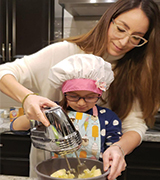 |
Charanya Sundar, MS, RDN/LDCharanya is a Program Manager at the CDC Foundation, Doctor of Public Health Student, and Adjunct Professor at the George Washington University Milken Institute of Public Health. She also has professional experience providing Medical Nutrition Therapy and nutrition counseling for obesity-related chronic diseases and as an educator, is passionate about teaching and empowering others. |
 |
Christy Moore, MSWChristy is the founder and owner of Social Spin, Inc., a company that creates healthy, employed communities through purpose-driven laundromats. Her focuses empower victims of violence, protect women’s reproductive rights, and increase civic engagement. She also serves as a board director for Achieving My Purpose, a nonprofit organization that empowers young women of color to embrace and achieve their purpose. |
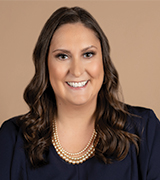 |
Delmi OrtegaDelmi has worked for the University of Arizona Cooperative Extension in Maricopa County for over 17 years as an Expanded Food and Nutrition Education Program educator, and currently as a program lead for AZ Health Zone and the EFNEP program. Motivated by the challenge of understanding and meeting community needs, she appreciates meaningful conversations that offer diverse perceptions and ideas. |
 |
Diana Hawkins, BADiana is an enrolled member of the Sisseton Wahpeton Oyate and is the Public Health Education Project Manager. Diana worked with the Sisseton Wahpeton Oyate through their Community Health Education as their Tribal COVID-19 coordinator, and Wellness Coordinator. Her experience provides insight into intertribal relations, collaborations, and providing education on health topics directly to community members. |
 |
Dr. Kevin Lorson, PhDKevin is a professor and director of the Health & Physical Education Program at Wright State University. He has over 20 years of experience as a teacher, researcher, and advocate. He led the efforts to create the Ohio Physical Education Standards and Evaluation, Health and Opioid Prevention Education Curriculum, and the Health, Opioid Prevention, Education and Support in Schools project. |
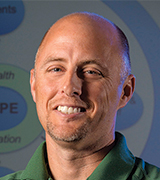 |
Dr. Loren Hudson Ed.DLoren Hudson, Ed. D. (Diné (Navajo) is of the Todich’iinii (Bitterwater) clan. He was born and raised on the Navajo Nation and is the owner of Naabaahii Education Solutions LLC. With more than 18 years of experience working within Coconino and Navajo county school districts, he is a published author of “Honoring Our Children: “Your Stories will Feed You: An Oral History Unit within a High School-University Partnership” and “Assessing Navajo student achievement through Navajo language programs at the secondary school level.” |
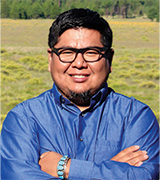 |
Elisabeth TyndallTyndall has worked for Cooperative Extension in several positions but loves the community work of SNAP-Ed. She works in Early Childhood Education and Food Systems. |
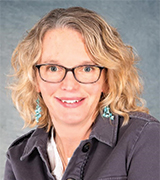 |
Evelyn Whitmer, M.Ed., CCHCFor the past 21 years, Evelyn created and delivered research-based, objective, informal education programs to Arizona families. She develops and conducts programs to address priority needs. Her work continues with community leadership, partners, and citizens to develop sustainable changes in the community with policy, systems, and environmental changes. |
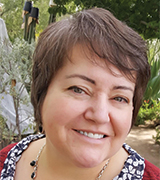 |
Gail LaGranderOver the course of her career, Gail has worked as a community mediator, neighborhood specialist, director of a neighborhood resource and learning center, and school district family engagement coordinator. Her work supports and nurtures resident self-efficacy to collectively channel their wisdom, lived experience, and leadership into transformational change efforts that produce safer, healthier, and united communities. |
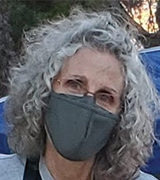 |
Gretchen Dobervich, BSWGretchen Dobervich serves as the Public Health Policy Manager for the American Indian Public Health Resource Center at the North Dakota State University Department of Health. She is a Master of Public Health Candidate. She has served in the North Dakota House of Representatives since 2016 and as House Minority Caucus Chair since 2019. |
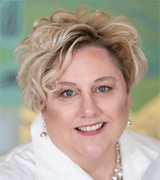 |
Jason GilletteJason is a United States Marine and owner of Guild Health Group, a Public Health firm |
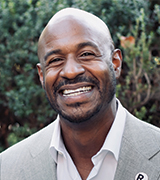 |
Jennifer Nowicki ClarkJen Nowicki Clark brings over 20 years of expertise in participatory education, civic engagement, and technology training to community-based initiatives. She has facilitated digital storytelling and participatory media workshops with a variety of groups. Jen has served as the Executive Producer and Board member for Odyssey Storytelling. She is an educator, organizer, and story coach who loves language and seeing how sharing stories in new ways can transform individuals and communities. |
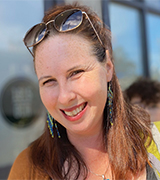 |
Josh SchachterJosh is an educator, visual storyteller, and social ecologist. Over the past 20 years, he has facilitated community-based media projects with youth, teachers, schools, and nonprofit organizations. His work as an educator and photographer has been recognized internationally and his photographs have been published globally in venues including the New York Times and the Navajo Times. |
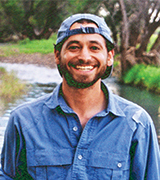 |
Kaley NecessaryKaley serves as a community lead and garden coordinator in the Wilson and Central Phoenix communities. Previously farming vegetable crops in multiple states, she is passionate about local agriculture and supporting those who serve an integral role in our local food system. She is eager to continue building relationships with school and community gardeners, hoping to increase access to fresh produce in our community. |
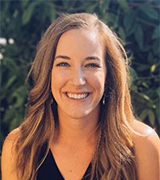 |
Dr. Kay Orzech, PhDKay specializes in biocultural and medical anthropology. She worked on research projects about adolescent sleep and technology use across the lifespan before returning to Arizona as a program evaluator for SNAP-Ed. Since 2015, she has been the evaluator for Active Living and Adult Direct Education and regularly works with staff in just about every county in the state. |
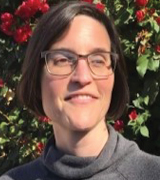 |
Dr. Laurel Jacobs, DrPH, MPHLaurel’s work focuses on the role of social capital in a community health worker (CHW) model for grassroots community advocacy. She developed a model to describe the relationships between social capital and her qualitative findings: CHWs play a role in community advocacy efforts by using their social capital to develop leaders, unite people, build new partnerships, and take issues up the ladder of command. Laurel is the lead evaluator for Arizona’s SNAP-Ed program and the Principal Investigator on the project. |
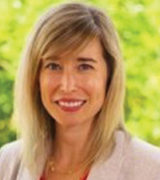 |
Lauren McCulloughLauren is a Program Coordinator, Sr. with the University of Arizona’s SNAP-Ed program in the School of Nutritional Sciences & Wellness. She joined the program in 2014 after completing her Master’s in Public Health, with a focus on Health Behavior and Health Promotion. Her local and statewide program roles include active living, PSEs, and internal evaluation support. |
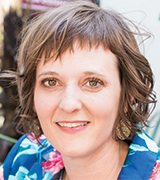 |
Dr. Madeleine deBlois, ScDDr. Madeleine deBlois is a Research Scientist with the Community Research, Evaluation, and Development (CRED) group in the Norton School of Family and Consumer Sciences at the University of Arizona. CRED provides evaluation support for Cooperative Extension in addition to working with local and state organizations on a diverse array of research and evaluation projects. Dr. deBlois’s areas of focus include schools, early childhood, socioeconomic wellbeing, health, and developmental evaluation. |
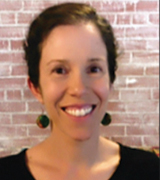 |
Natoyah SwiftNatoyah has been with the Cooperative Extension since 2014. She started as a Direct ED Nutrition Educator for the SNAP-Ed program and then took the position of the Program Coordinator for the extension’s dental program, Cavity Free AZ. She is now the Marketing Assistant for the SNAP-Ed program and for the Cochise County Extension office. |
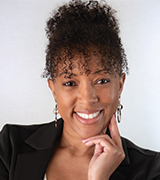 |
Rick Griffin, M.EdRick is the Director of Training for Community Resilience Initiative (CRI), the nation’s first community resilience network. Rick uses his education to develop innovative content and to deliver engaging presentations. He speaks to thousands of groups from all over the country and is widely recognized for his work with trauma-informed practices. He has developed several trauma and resilience-based programs and practices, and is currently working on a Trauma-Informed Leadership project, to highlight Neuroscience principles in professional development. |
 |
Taylor Aasand, MPH, RDNTaylor Aasand, MPH, RDN is a registered dietitian with a public health background and a passion for policy. She began her career working with clients seeking treatment for substance use, addiction, and eating disorders. She has training in intuitive eating, eating disorders, disease management, and general nutrition. Most recently, Taylor is pursuing policy change in Arizona by advocating for weight-neutral messaging and programming. |
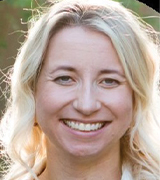 |
Teresa Sosa, CHWIn 2019 Teresa was selected by the Arizona Community Health Workers Association for “Community Health Worker of the Year.” Her willingness to learn has reinforced her ability to share, teach, collaborate, communicate, unite, include, and provide guidance as a true leader. Special achievements in her professional life include the establishment of the Salud en Balance Health Team, Salud en Balance Community Center, and the relationships that she has built with the community and with representatives from the public sector. |
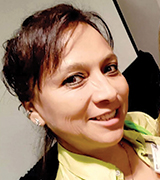 |
Theresa LeGros, MATheresa has a long career as a professional evaluator. Her approach to SNAP-Ed evaluation is rooted in real-world experience and a systems science lens. When you want to know if, how, or why people, organizations, and communities change, you need to explore how they interact. |
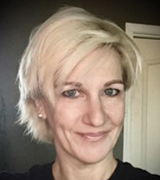 |
Vanessa Tibbitts, MAVanessa is a member Oglala Lakota Nation and program leader for the American Indian Public Health Resource Center at North Dakota State University. Vanessa received her Master of Arts in Lakota Leadership and Management and has worked in public health for the last 16 years with tribal nations. She has experience with commercial tobacco prevention, maternal and child health, utilizing culture as prevention, and Indigenous research methodologies. Vanessa uses her skills to serve for the future of her people. |
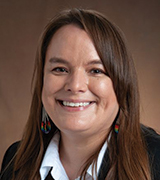 |
